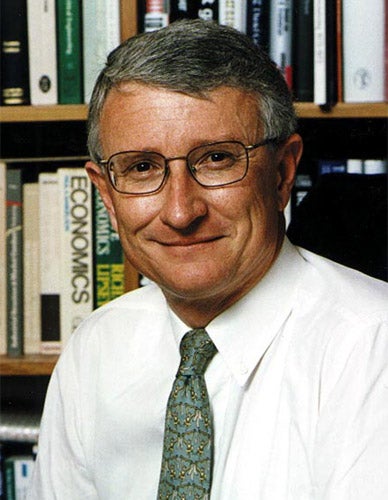Oxford 'needs £1bn injection to be considered world class'
'Genuinely worrying times' ahead as university goes in to red for fourth straight year

Oxford University is plunging into the red for the fourth year running and needs £1bn to bring its facilities up to "world-class" standards, its outgoing vice-chancellor said.
John Hood, who has been at the helm for five years, said in his farewell speech: "From a financial perspective these are genuinely worrying times." He was speaking as the Government prepared to launch its long-awaited inquiry into student fees – which is expected to announce its conclusions after the general election.
Dr Hood said the university expected to suffer a funding loss of about £8m this year. "The investment required to bring Oxford University's estate up to 'world-class' standards is quite comfortably in excess of £1bn."
The university was also spending £8,000 more per student than the £8,750 income it received from fees and grants. Government budgets were over-stressed and the level of endowments received by the university was "extremely volatile". As a result, the approaching inquiry into top-up fees assumed a "critical importance".
Dr Hood said that any increase in fees would have to be matched by safeguards to ensure that students from more disadvantaged backgrounds were able to attend the university.
His warning about the university's financial plight was echoed by the incoming vice-chancellor, Andrew Hamilton, a former provost of Yale University in the US, who said: "The years ahead will not be easy for Oxford. They will require an intense debate on the role of the university, its financial income and its relationship with the rest of the national and international world."
He also said that the university had to take a stand against "political opportunism and social engineering".
The fees review – promised when top-up fees of up to £3,000 a year were first introduced in 2006 – will face pressure to lift the cap. Vice-chancellors have indicated that it would be possible to raise the cap to £5,000 a year without affecting student demand for places. Both Labour and the Conservatives are likely to back an increase in the fee level.
Join our commenting forum
Join thought-provoking conversations, follow other Independent readers and see their replies
0Comments